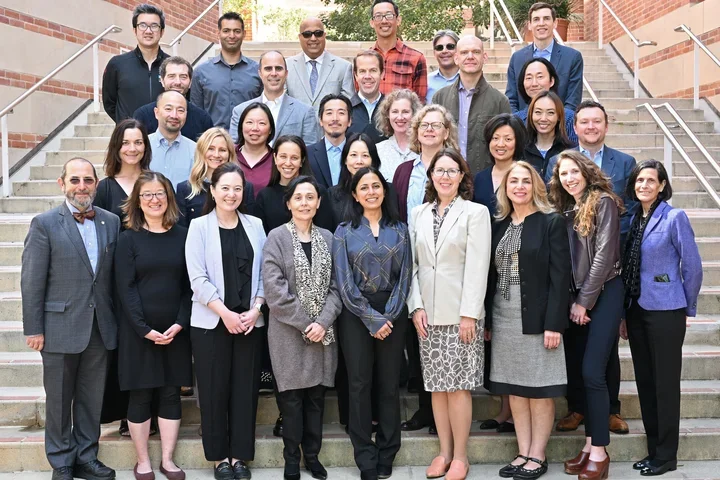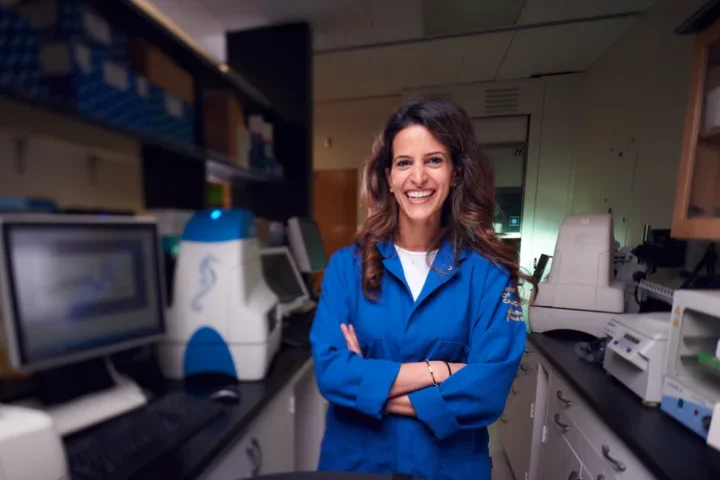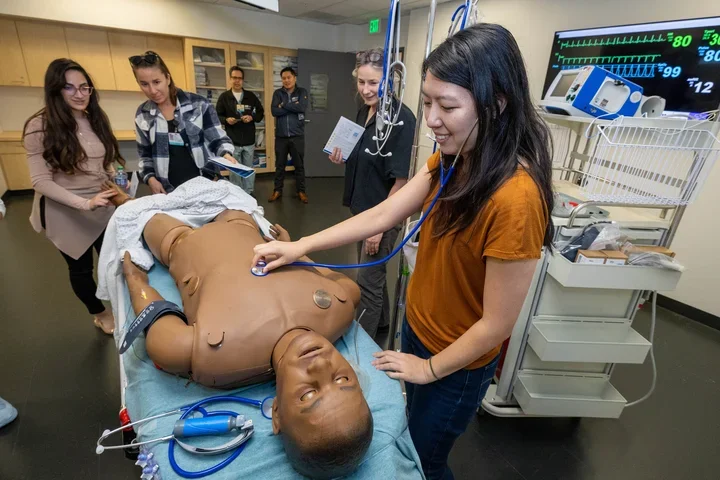How to Become a Neurologist
A UCLA Doctor Explains

A Day in the Life of Dr. Charles Flippen II, UCLA Neurologist
An exciting and challenging field, neurology encompasses all disorders of the brain and nervous system—parts of the body we're still learning about. Neurologists well prepared to take on these challenges are curious, compassionate and committed.
Dr. Charles Flippen II, a neurologist and director of the Neurology Residency Program at the David Geffen School of Medicine at UCLA (DGSOM), describes how "the 3 Cs" are at the core of every neurologist's work.
"It's rare for a problem to unfold in front of you; you have to do detective work," he explains. "You have to be curious about the patients' stories. We don't have cures for many disorders, so you have to be compassionate and provide the best care for as long as you can. Finally, you must be committed. There's never a time when you say there's nothing you can do."
Developing Patient Relationships
Neurologists spend a lot of time with each patient, as much as 45 minutes for a new patient visit.
"You have to want to hear patients' stories and listen intently," Dr. Flippen says. Diagnosing patients is a lot like solving puzzles. Neurologists have to hear all the tiny details to narrow down where in the nervous system the problem originates and then narrow down possible diagnoses.

Dr. Flippen says neurologists should also be disciplined in studying, listening, and following up.
"It takes time to narrow down possible diagnoses — you can't just rush in," he says. "It becomes automatic over time, but early on, you have to be patient."
Specialties for All Personalities
After medical school, neurologists complete a one-year internship, followed by a neurology residency and then a fellowship to further specialize.
Dr. Flippen specializes in headache medicine, but there are subspecialties to suit every personality. For those who prefer a faster-paced environment, treating stroke may be a good fit. People with a greater interest in procedures may want to consider neurocritical care. Doctors interested in complex puzzles may find studying Alzheimer's or behavioral neurology satisfying.
Whether they choose community practice, research, academic medicine, tertiary care, or hospital care, neurologists will have the chance to work with a wide array of patients. Plus, research and treatment advances make it an exciting time to study, practice and research neurology.
Why Study Neurology?
Many neurologists enjoy building relationships with patients. Few physicians get to spend as much time with patients as neurologists. In fact, witnessing a doctor-patient interaction inspired Dr. Flippen to change his specialty from pediatrics to neurology.
"The doctor carefully listened to and examined each patient with care," he remembers. "The patients' problems were intriguing, and that doctor-patient relationship aligned with what I always imagined being a doctor was all about."
When Dr. Flippen realized how much mystery still surrounds headaches, he knew he had the chance to make a difference in many lives.
"There's an emotional payoff to working with people who have chronic painful conditions," he says.
Dr. Flippen encourages all medical students to pay attention to how neuroscience plays a part in each field. The brain connects to every organ, and understanding how the brain works leads to understanding how the body works as a whole.
"Neurology is intellectually satisfying, and the connections we make with patients keep us interested and excited in our work," he explains. "The patient is always at the center of everything we do."
(What Does a Neurologist Do? Click the link to learn more...)



